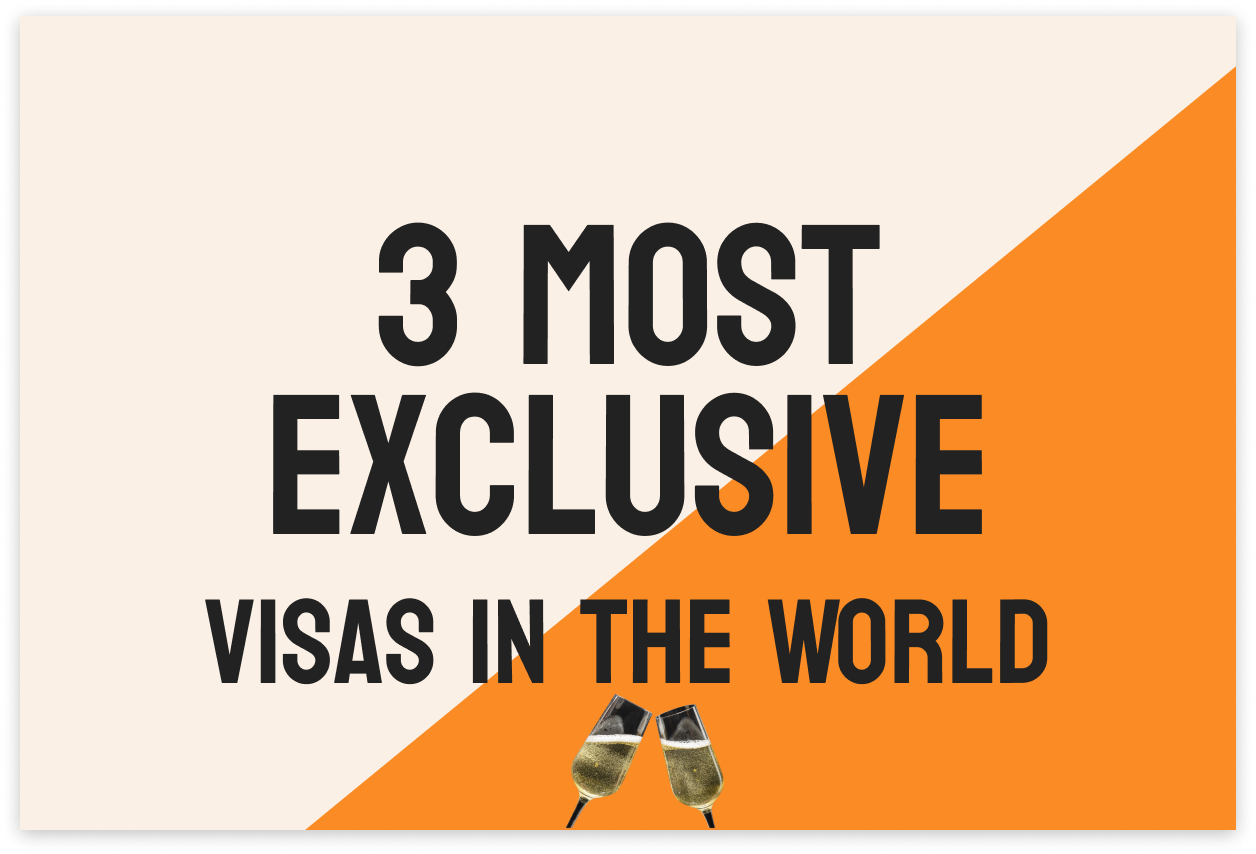The 3 Most Exclusive Visas In The World (And How To Get Them)
For freedom, privacy, and elite access these are worth knowing about.
Some visas are open to everyone. Others are not.
They don’t show up in blog posts or startup forums. You won’t find them listed next to remote work programs or golden visa rankings. They have strict requirements. Some are tied to nationality, others to income, and a few to reputation. What they offer is long-term access to countries that don’t hand out permits easily.
These visas are hard to get.
Why Exclusive Visas Are Growing in Demand
While headlines focusing on migration crises and tightened border policies, a different kind of movement is taking place (for a while). Responsible and long-term oriented people are usually thinking about long-term safety. They are not reacting to emergencies, but show up prepared.
This is especially true among people with mobile careers. Founders, consultants, investors, and independent professionals are rethinking what access really means. For them, a visa is not just permission to enter, but a way to gain stability. Having access to a trusted banking system. Living in a place where legal contracts are enforced. With healthcare they would actually use and schools they would send their child to if things went wrong back home.
Most public conversations focus on things like digital nomad visas or citizenship by investment.
These tools can be helpful, but they also come with limits. Many nomad visas are short-term. They don’t offer real integration, but have a time limit. Some citizenship programs are under political pressure and have already been closed. And even second passports often depend on how strong your new nationality actually is. Not to forget, it is one thing to hold a passport, but another to be welcomed by the country you received it from (and the people who live there).
Which is why exclusive visas are different. They are not built for mass appeal. In fact, they are often designed to keep the door narrow. They are issued quietly, without promotion. The requirements are high, the vetting is strict, and the outcome is not guaranteed.
But this is exactly why they are growing in demand. People who value stability are willing to meet the bar. People who work globally are tired of being treated as temporary visitors. And people with serious responsibilities want to know they can land somewhere without having to explain themselves.
The Difference Between “Available” and “Attainable”
There is a difference between what is listed and what is real.
Most visas in the world are technically available. You can read about them on official websites. Some even have application forms in English, full guides, and response times. But that doesn’t mean you can get them. And it doesn’t mean they are meant for you.
Some visas are available in theory, but filtered in practice. You might need a passport from the right country. You might need a spotless personal history, years of tax records, or a job title that sounds impressive in the right circles. Others require interviews, background checks, or internal approvals that go far beyond the checklist. They are not built to welcome many people. They are built to screen for a specific type.
Sometimes the barriers are written in policy. Other times they are invisible. An income threshold that looks clear on paper might mean something very different depending on who you are, where your money comes from, or how you present it. A visa category might exist, but is processed slowly, quietly, or with bias. The paperwork is only one part of the process. The context matters. The way you are seen by the system matters.
This is where exclusivity lives.
Not in the document itself, but in the distance between being eligible and being accepted. These visas act more like private systems than public services. They are structured for selectivity. You don’t just fill out a form and move in. You have to fit the frame. You have to prove you are the kind of person that country is willing to make space for.
This does not sound fair (and it isn’t). But I’m trying to paint a real picture here.
And if you understand the difference between what is technically possible and what’s actually viable, you start to see why these visas matter. It also helps, to not waste your time and energy on something, that might never happen (or at least have a realistic picture of what it takes beforehand).



